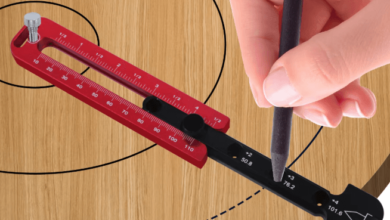Swiss Turn Machining: A Game Changer in Precision Manufacturing

Swiss turn machining has transformed the landscape of precision manufacturing, offering an innovative solution for creating complex, high-precision parts. Known for its exceptional accuracy, this machining process is widely used in industries such as aerospace, medical, automotive, and electronics. The ability to manufacture small, intricate components with tight tolerances has made Swiss turn machining a critical technology for high-performance industries. In this article, we will explore the workings of Swiss turn machining, its advantages, applications, and how it continues to shape the future of precision manufacturing.
What Is Swiss Turn Machining?
Swiss turn machining, also referred to as Swiss screw machining, utilizes a specialized CNC (Computer Numerical Control) lathe to produce parts with high precision and complex geometries. The machine is equipped with a guide bushing that supports the workpiece during the machining process. This setup ensures that the part remains stable and rigid, reducing vibrations and improving the overall quality of the finished part.
Swiss turn machining is particularly well-suited for small, intricate parts that require a high degree of accuracy. It is capable of performing various operations such as turning, milling, drilling, and tapping, all within a single machine setup. By consolidating multiple processes into one, Swiss turn machining not only improves efficiency but also minimizes the need for secondary operations, reducing production time and cost.
See also: Scribe Marker: A Vital Tool for Precision and Durability in Marking
The Advantages of Swiss Turn Machining
1. Unmatched Precision and Accuracy
The primary benefit of swiss turn machining is its ability to produce parts with extreme precision and tight tolerances. Swiss lathes can achieve tolerances as tight as 0.0001 inches, making them ideal for applications that require high levels of accuracy. Whether it’s a small medical implant or a tiny aerospace component, Swiss turn machining ensures that each part meets stringent quality standards.
The guide bushing mechanism plays a crucial role in maintaining part stability and minimizing the effects of any vibrations during the machining process. This stability is key to producing components with the desired geometry and surface finish, even when working with challenging materials.
2. Efficient Production
Swiss turn machining offers high efficiency due to its multi-functional capabilities. The Swiss lathe combines turning, milling, drilling, and other machining processes into a single operation, which eliminates the need for multiple machines and setups. This reduces production time significantly and streamlines the manufacturing process, especially for small parts.
The ability to perform several operations in one setup also reduces the risk of errors that may occur when transferring a part between different machines. With fewer steps involved, Swiss turn machining offers a faster and more reliable solution for high-precision parts.
3. Flexibility in Material Handling
Swiss turn machining can accommodate a wide range of materials, making it a versatile choice for many industries. The process is compatible with metals like stainless steel, titanium, aluminum, and brass, as well as various plastics and composites. This material flexibility allows manufacturers to choose the ideal material for each specific application, whether it’s for corrosion resistance, strength, or biocompatibility.
For instance, in the medical industry, Swiss turn machining is often used to produce titanium implants that require a high degree of precision and strength. In the automotive sector, it can be used to create lightweight yet durable aluminum components for engines and transmissions.
4. Superior Surface Finish
Another significant advantage of Swiss turn machining is the superior surface finish it provides. Swiss lathes are designed to produce parts with smooth, polished surfaces, which is particularly important in applications where surface integrity is critical. Components that require coatings, such as anodizing or plating, benefit from the smooth finish produced by Swiss turn machining, as it provides an excellent foundation for additional layers.
In industries such as aerospace and medical device manufacturing, where even the slightest imperfection can compromise the performance and safety of a component, the ability to achieve such high-quality surface finishes is essential.
5. Capability for Complex Geometries
Swiss turn machining is ideal for creating small, complex parts with intricate geometries. The Swiss lathe’s design allows for multiple axes of motion, enabling it to perform operations on all sides of a workpiece simultaneously. This capability makes it possible to create parts with complex features, such as undercuts, grooves, threads, and contours.
The ability to machine complex parts without the need for secondary operations reduces both production time and the chance of errors, ensuring that each component is manufactured to precise specifications. This is especially beneficial in industries like aerospace and medical device manufacturing, where components often have intricate geometries that cannot be achieved through traditional machining methods.
Applications of Swiss Turn Machining
Aerospace Industry
The aerospace industry is one of the primary sectors benefiting from Swiss turn machining. Parts like turbine blades, fuel nozzles, and fasteners require high precision and must perform reliably under extreme conditions. Swiss turn machining ensures that these critical components are manufactured with the necessary precision and durability.
The aerospace sector also demands high volumes of parts, which Swiss turn machining can accommodate due to its efficiency. The ability to produce complex parts quickly and accurately makes it an invaluable tool for aerospace manufacturers.
Conclusion
Swiss turn machining has revolutionized precision manufacturing, offering an efficient and highly accurate solution for producing small, complex parts. Its ability to handle intricate geometries, produce superior surface finishes, and work with a variety of materials makes it an invaluable technology in industries like aerospace, medical devices, automotive, and electronics.
While Swiss turn machining requires a significant investment, its ability to streamline production processes, improve part quality, and reduce cycle times makes it an essential tool for manufacturers focused on precision and high-performance components. As industries continue to evolve and demand more sophisticated parts, Swiss turn machining will undoubtedly remain a key player in the future of precision manufacturing.





